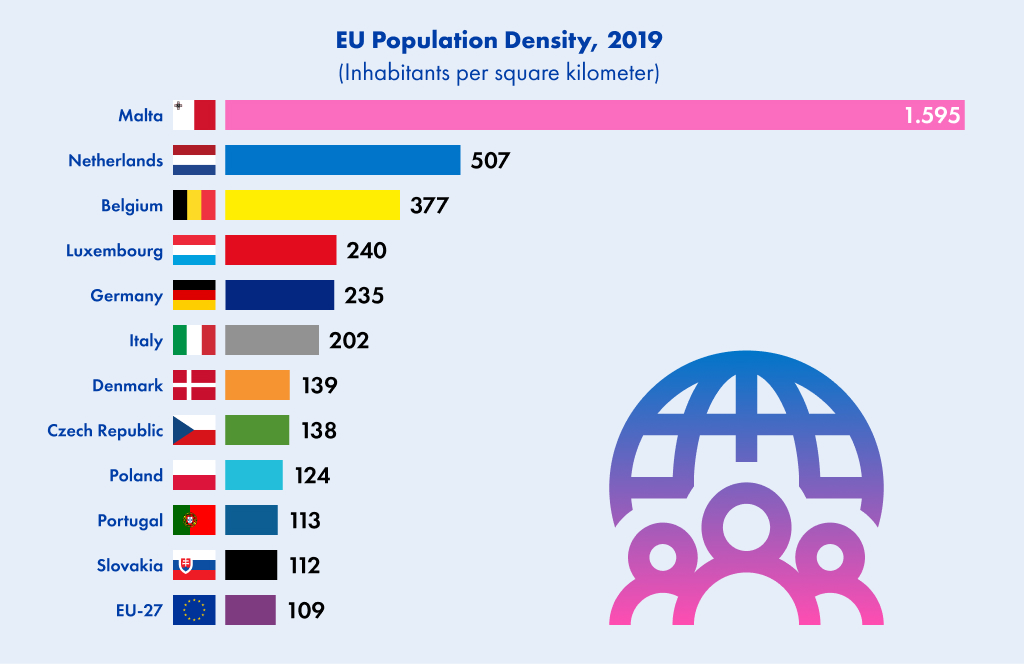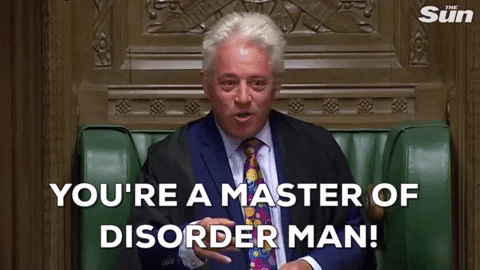Issue #121
Guten Morgen! Welcome to another edition of the Krautshell! This week, Mats brings some measured arguments to bear in his House’s View as he analyzes the ongoing dispute between Big Telco and Big Tech over EU plans for a so-called Telco Tax. In addition, check out our main articles about Germany’s sinking popularity among expats (and what bureaucracy has to do with it), the liberal FDP’s search for a candidate in the runup to next year’s European parliamentary elections, and the upcoming German “Mega Strike”. Finally, enjoy Szilvia’s take on King Charles III’s upcoming trip to Europe along with a teaser of next week’s “Royal #THEÜBERSICHT” – tune in on Monday for more. Have a great weekend! Anna Szilvia Expats, Beware Ah, Germany. Land of ever-flowing beer and Bratwurst. It is a wonderful country to visit, as the more than 12 million annual visitors can attest, and not just for aficionados of hoppy ambrosia and traditional Hausmannskost (plain cooking). Germany’s cultural diversity is legendary, from mountainous Catholic Bavaria to the wind-swept Protestant North Sea coast, from the Francophone Rhineland to the Pilsner-guzzling Prussian East, where Germany’s Eastern European history still seeps through. Germany is all of this and more, but beyond Beer and Bratwurst there is another “B” that cannot go unmentioned… Bureaucracy. For all its other virtues, it is this German specialty that is increasingly driving citizens and residents up the wall. Expats, beware! The InterNations Expat Essentials Index released a survey this week ranking 52 countries based on ease of settling down and starting a new life. The very bottom of the list? That’s right, Deutschland. The author of these lines, to be fair, has spent most of his life in Germany and already had a rather jaded view of how things run over here, but 52nd out of 52? That can’t be right. But alas, the comments by survey respondents were pretty illuminating, and here are some highlights (or as a Bavarian would say, Schmankerl). Besides Germany flunking three out of the four main categories (housing, digital life and language), it was descriptions of Germany’s notorious bureaucracy, “prolonged Digital Dark Ages” and “snail’s pace internet” that predominated. All of these things are true, and unfortunately, excessive bureaucracy seems to contribute to many of the problems Germans face. But don’t despair, dear future German resident! It may be hell to renew that residence permit, but there’s no better way to drink to your sorrows than at a sturdy oak table in a good old-fashioned Biergarten. Prost! Mirror, Mirror on the Wall – Who will be the Next FDP Spitzenkandidat for the Europawahl? The next European Elections 2024 might still be over a year away, but the German political parties have already started the search for their next respective Spitzenkandidat. According to intel gained by The Pioneer, the liberal FDP is considering Marie-Agnes Strack-Zimmermann as their next leading candidate. Strack-Zimmermann is currently member of the Bundestag and Chair of the Defense Committee. She is one of the most vocal voices when it comes to support for Ukraine – and criticizing Chancellor Scholz’s reluctant decision-making. Considering her party is in a coalition with the Socialists, her blunt criticism is not always well-received. On the other hand, Strack-Zimmermann is ever more present in German media and one of the most visible politicians of the liberal party. However, one cannot help but wonder: is this really a strategic political move to gain votes in the upcoming elections, or is the FDP leadership trying to move a defiant voice to Brussels? Arguably, this decision cannot be in the interest of Strack-Zimmermann. As a politician focusing on security and defense, she has little to gain joining the European Parliament. The European Union has no competences whatsoever in these areas, and all the important decisions are being made in the capitals. Generally, it is a very a common move to discard unwelcome politicians to Brussels. Most famously: Commission President Ursula von der Leyen who was no longer viable on the German political stage after various scandals. Less famously, but not less interestingly: Nicola Beer, current European Parliament’s Vice-President and FDP-Spitzenkandidat for the European elections in 2019. Rumor has it Beer’s career shift to Brussels is due to her difficult relationship with party leader Christian Lindner. Strack-Zimmermann’s potential nomination presents yet another coup against Beer who – as another rumor has it – was already getting ready to be the Spitzenkandidat for 2024. The official nomination is yet to take place later in the year – of which we will of course keep you posted. When Everything Stands Still Granted, whenever you visit Germany, you will give up your cliché about German punctuality quite quickly once you test out the Deutsche Bahn. However, if you were planning on taking the train in Germany on upcoming Monday, you would be quite surprised to see… nothing. The second biggest German trade union “ver.di” together with the trade union “EVG” is planning on a major and nationwide strike. This is because they feel not exactly pleased by the way the German state (as an employer for most transport personnel for instance) responded to their demands in latest collective bargaining. The EVG demands a 10% pay raise for train workers or at least 500€ more per month. Simultaneously, ver.di demands a 12% increase for their personnel. This is of course a response to rising prices mainly caused by the energy crisis following the Russian war on Ukraine. It’s following already successful bargaining for instance for people employed by the German Federal Post Office who got a significant pay raise just recently. The representatives of the state-owned companies that are responsible for our transport system are outraged. In response to the demands by the trade unions they offered a package of a 5% pay increase and 2,500€ one-time bonus. Too little in the eyes of the trade unions. And furthermore, I have bad news for Porsche-driving chief editors of major German liberal newspapers who advocated for cars (and even wrote a whole book about the Porsche 911, also available in English and maybe an alternative shouldn’t you like Goethe so much) as freedom and independence from a fairly shitty German railway system: the company operating the German Autobahn is – you guessed it – state-owned and therefore also subject to the strike. When everything is standing still in Germany on Monday (except the airport in Berlin which is not strike-hit apparently, LOL!) we might return to something that can be so important in turbulent times: slow movement. Source: Statistisches Bundesamt THE HOUSE’S VIEW: by Mats You’ve Got the Bill, Right? It’s a Friday night, you walk into the local bar with your roommate. You’ve recently landed your dream job – great pay and benefits with super exciting projects. He’s stuck in a dead-end job that pays the bills but isn’t blowing anyone’s socks off. When you get to the bar to order drinks, he turns to you and says “hey man, congrats on the new job! It’s time to celebrate, first round’s on me!” He orders both of you a beer – but when the bartender comes back with the bill, your roommate realizes he left his wallet at home. He turns to you with a slightly embarrassed look on his face: “Sorry about this, but could you pay? I mean, with all that money you’re making in that new fancy job, I guess this won’t make much of a dent in your bank account, right?” You smile and hand the bartender a ten-dollar bill. “No problem, I’ve got this one.” But then, just as the bartender goes to serve the next customer, your roommate flags him down again: “Ah, and since he’s making all that money now, I’ll have another eight vodka redbulls, and next round for the entire bar is on him as well!” That, ladies and gentlemen, is what is currently happening in Brussels between the Big Tech- and Telecommunications sectors. In this case, Big Tech is “you” with the lucrative job, while the Telco is the stingy roommate. Let me explain. It’s All a Question of Perspective Fair Share Contribution, Telco Tax, Telecommunications Levy – it doesn’t matter what you call it, but this is THE topic of discussion in Brussels and other European capitals at the moment. In short: Telecommunications companies (Internet Service Providers, ISPs) are on the hook for massively expanding their networks to further digitize Europe. Realizing how expensive this undertaking would be, ISPs have called on the companies most responsible for data traffic on their networks – Big Tech – to pay more for the heavy traffic they are causing on telco networks. To address this, the Commission has opened a stakeholder consultation. Here’s their case for why. You Have Some Spare Change? As the name chosen by the Telecommunications industry for this topic indicates (Fair Share Contribution), for them it’s all about everyone paying for the data volume they use on a proportional basis. Lobbyists for the telco companies will pull out statistics like the six “large tech actors” alone – in this case Meta, Alphabet, Apple, Amazon, Microsoft, and Netflix – accounted for 56% of global data traffic in 2021. Or, they might point to the fact that the average mobile data user had a monthly usage of 8.5 GB/month in 2021 compared to 16.2 GB/month in 2023. As you can see, the main line of reasoning is “we are dealing with significantly more data traffic compared to previously, and most of that traffic is caused by these ‘big six.’” After having established that foundation, the telco companies go a step further: demonstrating that they are relatively small compared to Big Tech. Specifically, referring to the less-than-a-trillion-dollar market capitalization of the entire industry compared to a little over seven trillion for Big Tech. Finally, they bring it home by showing what benefits European society could reap if Big Tech companies contributed more to network expansion – namely further GDP growth, energy savings, and more innovation through 5G. Essentially, this says: look at the disservice Big Tech is doing all of us by not paying more. As you can see, as is the case with any good debate, it’s all about the story arc. And What about Big Tech? Quite understandably, Big Tech companies are not amused. There are many arguments that can be used here, but I want to highlight the ones that I believe are the strongest. First, disproving the fact that increased data traffic automatically results in higher costs. You probably have seen this through your own mobile or home network service packages: seemingly from one month to the next, your ISP is offering you significantly more data volume for a minimal price increase. This was confirmed by the Computer and Communication Industry Association, which found that between 2018 and 2021, global network traffic increased 160%, while costs for ISPs only rose 3% during this same period. Second, pointing out that there is no market failure here. It’s not like Big Telco companies like Deutsche Telekom, Telefonica, Vodafone, or Orange are going out of business en masse because of these plans. In fact, the Body of European Regulators for Electronic Communications found that not only are network costs fully covered by usage fees, but that investments in telco infrastructure are “particularly lucrative.” I mean, until recently telco companies were all too happy to offer data packages with unlimited data use on Netflix, Youtube, Instagram, and the like. The House’s View: Stop the Whining, Please. Okay, now that I’ve presented both arguments, I can just come out and say it: I think Telco’s arguments are weak. The main problem is that the arguments are based on the underlying assumption that a great injustice is occurring. Much like the anecdote in the introduction, Telco just assumes that because Big Tech makes a lot of money, and someone needs to pay for network infrastructure, a telecommunications tax is a logical solution. But it’s not. As I see it, Telco companies are simply weak innovators, and this shows on their balance sheets. By no means are they going bankrupt, but their profits are comparatively modest. Europe is already struggling to attract investment, and implementing this sort of additional fee would simply drive tech companies to operate elsewhere. If we want to talk about alternative ways to finance digital infrastructure, I think that’s worth a conversation. That being said, this proposed “fair share contribution” is not the way to achieve Europe’s Digital Goals. Sorry to rain on the parade. French Revolution, British Monarch, German Stamina It was long uncertain whether His Majesty Charles III can set foot on French ground tomorrow. Some thought that a literally fire-heated and smelly Paris atmosphere caused by angry trade unions and striking garbage collection would not be a really great start for a royal glamour trip to Europe. Especially as it was supposed to be a symbolic gesture, mending the Anglo-French relations that were strained by the UK’s decision to leave the European Union (Brexit). But hey, the King is going to Rome Paris anyway, even if French workers refuse to roll-out the red carpet and swing the Union Jack. I actually like this unperturbed king, but he might want to reconsider the part of his program where he is supposed to visit Versailles with Emmanuel Macron. After the French president tried to push through his pension reform like a real 18th century French king would have done, the most pompous pictures might be the wrong ones to communicate if a second march on Versailles should be evaded. If I were the royal counsel, I would advise the king to rather focus on the wine tasting part in Bordeaux. Nothing bad ever happened from drinking French red wine… Anyways… In comparison to the French thriller, the visit of HM Charles III and Queen Consort Camilla to Germany will be uneventful. From Wednesday to Friday they will walk with president Steinmeier through the Brandenburg gate, hold speeches and go to Hamburg by train. And as a side blow to the French colleagues: German workers even were so polite to put their big general strike to Monday not to disturb the King’s visit. So, why keep an eye on the Berlin visit? The “eco prince” is just a perfect fit to the governing German coalition, putting the fight against climate change far higher on the political agenda than simple charity activity. Charles III and the royal family also have much more in common with Germany than one would imagine. (Watch out for more details in our #TheÜbersicht – Royal edition, coming out on Monday here). In his last speech in the Bundestag – remarkably in German – then-still-Prince Charles underlined: “The central bonds between us will remain strong. We will always be friends, partners and allies.” Looking forward to your visit and messages, Your Majesty! Issue #121


FIRST, SOME SOLID INTEL:
TAKE A BREAK, GIVE YOUR EYES A REST.

LONG STORY SHORT:
WHAT’S ON OUR MINDS:





